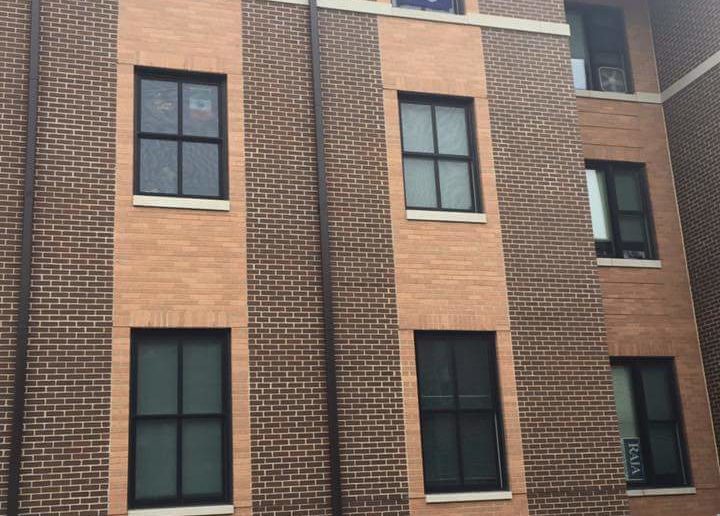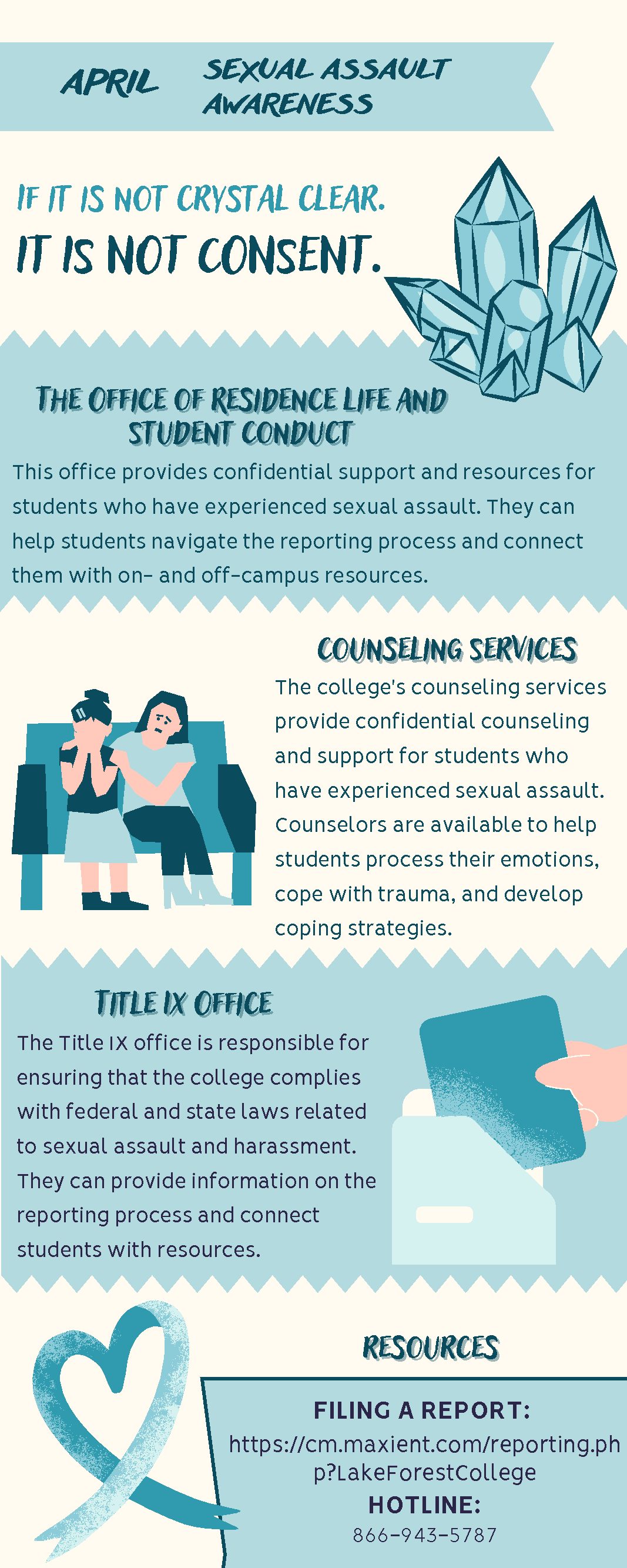On the night of November 8, 2016, Lake Forest College, Alexa Sanchez ’17*, was watching the presidential election from her laptop in her dorm room. Outside, South Campus Quad echoed with the voices of students chanting “Trump! Trump! Trump!” It was 10:00 p.m. on a Tuesday, and campus was eerily divided between the sound of celebration and the sound of solemn silence.
Alexa is the daughter of immigrants from Central America, and she told me she was worried because Trump’s presidency threatened to bring harm to the lives of her family and friends. “I was overwhelmed by all of it and wanted to get some fresh air,” she said. She closed her computer and left her building.
Alexa was standing in front of her residence hall when a group of five male students began walking toward her.
“I heard the guys before I saw them. I could tell they had been drinking. I was thinking ‘Oh, some excited Trump supporters’ and in my head I was like, ‘avoid, avoid.’”
That’s when one of them yelled out, “Looks like you’re going back to Mexico, bitch.”
She told me she froze in panic.
“They laughed, and laughed, and laughed. I was thinking, ‘Don’t look at them, don’t move.’ I was trying to be invisible,” she said.
The group of guys kept walking, and Alexa said she was grateful nothing more happened, but the experience stuck with her.
“I realized that there’s a lot more racism and prejudice around here than we are led to believe,” she said. “Trump’s election made it acceptable to actualize and verbalize that prejudice.”
* * *
Since the night of Donald Trump’s election, tensions have been heightened on campus. Some students have attributed this tension to the political division at the College.
“We have lots of views on both sides of the [political] spectrum, and you don’t see that as prominently on other liberal arts campuses,” said one male senior student who wished to remain anonymous.
Diversity of opinion on campus came to a boiling point in late January when Norma Vargas ’18 went to Facebook to post a picture of a Trump sign she saw on campus, accompanied by the following text:
This is what a predominately white institution looks like (57.6% white). I am ashamed of Lake Forest College for allowing their students to display this on their windows. Not only does it discourage every single person of color on the campus, but it lets us know that this institution sides with the racist, fascist, sexist, homophobic, ignorant, xenophobic, misogynistic, white supremacy. I am a product of immigrants and I will not stay quiet.
Vargas’ post quickly sparked attention, amassing 92 comments and 175 reactions within a week. Vargas shared that she “felt like someone should say something to let Trump’s supporters know that the voices of those that have been fighting him since the very beginning still matter and need to be heard.”
Many agreed with Vargas’ concerns, like Daniela Garcia ’17. “Lake Forest College uses diversity as a way to benefit the school, but what do they do for students of color? There needs to be a conversation had that’s not happening,” said Garcia.
One student ambassador shared that a Trump sign on campus deeply disturbed a prospective student on one of her tours. According to this ambassador, the touring student “expressed that she was uncomfortable with touring and actually wanted to leave mid tour” after seeing a Trump sign in a student’s window.
Despite a chorus of agreement to Vargas’ post, others defended the flag bearer and his First Amendment rights.
“You have the right to say what you want and not be judged in a campus environment that is supposed to embrace diversity,” shared Charlie Koules ‘17. “I should be able to say I voted for Trump and not feel alienated.”
Koules is a libertarian and identifies as socially liberal and fiscally conservative. As his family owns business in the U.S., Koules preferred Trump for his corporate policies.
“I didn’t vote for him because he’s anti-abortion or anti-immigration. I voted for him because what he was offering was a chance to rebuild business in America,” said Koules.
But Koules, like many conservative students on campus, is hesitant to vocalize his political beliefs.
“I feel like the community is silencing conservative students and their viewpoints,” he said.
Zachary Randall ’17 also voted for Trump, but said he doesn’t feel comfortable talking to other students about his opinions. “I feel like if I say I’m a Trump supporter, people here think I’m a racist right off the bat. The prejudice of some shouldn’t reflect on all of us,” said Randall.
***
While political divisions on campus have intensified since Trump’s election, so has a culture of activism. Vargas’ controversial post prompted an ongoing discussion that Vargas called “proof of what this new era has done to our communities and how much people are active in matters of civil rights and unfairness.”
Amalie Ausland ‘19 said she’s seen growing community involvement since Trump’s election as well. “As I’ve experienced in my clubs, student government, and classes, the tension on campus fosters activism. People have become more engaged than ever before.”
It’s clear that students of all political affiliations are eager to get their voices heard and bridge some of the divides on campus. Charlie Koules encouraged, “If we can have a conversation about issues, let’s have a conversation about issues. That is what we are missing.”
Whether or not you choose to engage in dialogue with your fellow peers, Alexa Sanchez offers some advice: “Treat people like human beings. That’s it. We need to learn to live together and respect our differences.”
*name changed to preserve the individual’s privacy



